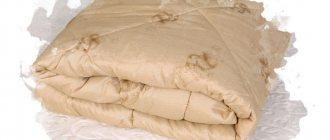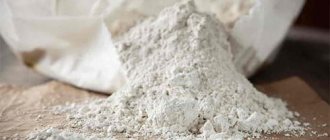Butter is one of those wonderful foods that makes everything taste better. Used in cooking, as a spread or in baked goods, butter is as versatile as it is delicious.
However, you might be wondering if you can freeze it. The answer is yes, you can indeed safely freeze butter to use later.
You can then defrost the butter and refreeze it. There is nothing wrong with refreezing butter. This will not necessarily spoil the butter, but it can negatively affect the quality of the butter by reducing the flavor and sometimes changing the consistency.
Here's everything you need to know about freezing and refreezing butter.
Frozen butter
Fresh butter is great for freezing, and you can expect great results if you freeze the butter while it is fresh. The approximate shelf life of butter in the refrigerator is four months, but if frozen it can last for a year or more. This will give you more time to eat the butter.
If the butter is kept frozen at all times, it will be safe to use within a year, but you may notice that the butter begins to show signs of freezer burn.
Keep butter in the freezer away from odorous foods such as onions, as butter tends to take on the smell and taste of the foods around it, and this is not as good when the butter used to bake the cookies has gone bad. garlic taste.
Frozen butter can be easily defrosted and left to thaw for several hours.
Freezing butter is a great way to stock up on sales and it's completely safe.
How to freeze butter
Freezing butter is so easy. If it's in its original box or wrapper, you can put it in the freezer as is. This way, it will be easy to identify and there will be an expiration date on the packaging that you can refer to later.
The original packaging of the butter should be sufficient to prevent the contents of the freezer from catching fire, but you can put it in a freezer bag if you plan to store the butter in the freezer for a longer period of time and this will add additional protection. so that the oil does not absorb other odors and flavors from other foods in the freezer.
If the butter was removed from the box or package before freezing, you can wrap the butter in aluminum foil or plastic wrap and then place it in a freezer bag or airtight freezer container.
If you want to freeze smaller portions of butter, cut the butter into sticks and wrap them individually, then place everything in a freezer bag. This will save you from having to defrost an entire block of butter when you just need a small amount.
Shelf life
Enterprises that manufacture such products indicate on the packaging the permissible shelf life of a particular variety. Within this time period, the preservation of all the beneficial qualities of this product is guaranteed. If you are planning to treat your guests to a sweet dessert that has not yet expired, you can be sure that it is suitable for consumption.
If it turns out that the shelf life of the tile has already expired, then such a product threatens human health and should be thrown into the trash.
Therefore, you must learn the first and most important rule: when purchasing chocolate or sweet products containing such a component, read on the packaging about the expiration date until which it remains.
We would also like to draw your attention to the fact that chocolate varieties have different shelf life. During production, a certain amount of fat is added to this type of product.
These are the ones that influence the duration of storage. The relationship is inversely proportional: the less fat in the tile, the better and longer it can be preserved.
The largest amount of fat is found in white chocolate, which is why it has a minimal shelf life. Below we provide data on the shelf life of all types of these products in descending order:
- Tiled. Such a product remains valid for a whole year, and in some cases more. This product has the longest shelf life.
- Dessert. If there are no other components in this form, it lies without losing its properties for up to 10 months.
- Dessert with additives. This product contains various fillings and additives. It is recommended to store it for no more than 90 days.
- Weight chocolate. Sweet chocolate products sold by weight and without packaging can be stored for up to 60 days.
- White chocolate. This variety, as already noted, contains a lot of cocoa butter and therefore lasts no more than 30 days.
- Chocolate candies. In their production, fruits and other natural ingredients are used, due to which the storage period is reduced. They can be stored for up to 14 days.
Chocolate factories are allowed to add food preservatives to their products to increase shelf life. The claim that these chemicals are completely harmless is considered controversial. When purchasing, it is better to prefer chocolate products with a shelf life of up to 180 days.
Defrosting oil
The safest way to defrost frozen butter is to place it in the refrigerator overnight. This way it won't come into contact with heat and will stay cool as it thaws.
If you need to defrost butter quickly, you can microwave it for 10 seconds, then turn it over and heat it for another 10 seconds.
If it starts to melt, remove it from the microwave. Some recipes allow you to use frozen butter, while others call for melted butter, so check what condition the butter should be in and adjust your thawing methods to accommodate this.
Another great way to quickly defrost butter is to grate it while it's frozen. Peel back part of the wrapper and grate the butter using a cheese grater. Grated butter will melt much faster and will be easy to use once it is soft.
You can also run a stick of frozen butter over an egg cutter and place the butter slices on a platter. They will become soft in a short period of time and will be easy to pick up and place on bread or a hamburger bun.
What and where to store
It is better to place large supplies on a shelf in a cool pantry or wall niche, protected from light.
The container with the product that is currently being used can be kept in the kitchen cabinet if it is located far from heating appliances. It should be remembered that the oil should not be exposed to sudden temperature changes.
Storing sunflower oil at home is permissible in factory-made plastic containers for no more than 1-3 months. If there is a need to extend its storage, it is better to pour the product into a dark glass container.
Freezing oil
Freezing butter is no problem at all, but you may be nervous about re-freezing butter that has already thawed. There is no definitive answer to how good it is for the butter, and it depends on how the butter was defrosted and how it was handled.
When frozen, the cells in the walls of food are broken, so frozen butter will not taste as good as fresh butter. When you freeze, defrost, and then refreeze butter, more cells break down, allowing more moisture to leak out of the butter and ultimately changing the integrity and flavor of the butter.
Another problem with refreezing butter is bacteria. In butter that is frozen and then thawed, harmful bacteria grow much faster than in fresh butter, and bacteria begin to develop as soon as the butter begins to melt.
Freezing different types of butter
All types of butter can be frozen, but some are different when it comes to refreezing. Here's a list of the different types of butter, and whether you can refreeze it after defrosting it.
Salted butter
Salted butter contains 2% salt and is a common butter used in cooking and for spreads. The extra salt in the butter allows it to last longer in the refrigerator, so you won't need to refreeze it if you know you'll be using it within a month or so.
When re-freezing salted butter, the salty flavor may become more intense after the second freezing , as more cell wall-breaking liquid will be lost during the freezing process. However, if handled correctly, salted butter can be re-frozen.
Semi-salted butter
Half-salted butter contains 1% salt and, like fully salted butter, can be stored in the refrigerator once thawed for several weeks. It freezes really well, but again you may notice the butter becoming saltier after the second freeze, although it won't be as pronounced as 2% salted butter.
Sour oil
Cultured butter is unsalted butter that has a bacterial culture added to the cream before churning. This gives the oil an antique flavor and a sharper taste. You can freeze butter once, but you should not freeze butter again.
With additional bacteria, there is a greater chance of bacterial infection after the first thaw, and this will only increase with freezing and re-thawing. To avoid refreezing butter, freeze it in small portions so it doesn't go to waste.
Special oil
Special oil is prepared with the addition of herbs and spices such as garlic or thyme. It is used in cooking to add extra depth of flavor. The flavors of spices or herbs may permeate the oil more during freezing and thawing, which is a good thing if you want a burst of flavor.
When re-frozen and re-thawed, the butter may have a stronger flavor and you will need to be sure of the ingredients added to the butter to ensure they will re-freeze.
Whipped butter
There is more air in the whipped butter, so it is fuller, softer and easier to spread onto the bread. It is not suitable for baking recipes that call for plain butter. Whipped butter can be frozen and thawed, but it will lose its airiness and will not be as light as when fresh.
This will only get worse if it is re-frozen and thawed, and the whipped butter will become thicker and less creamy over time. Freezing is fine, but it will ruin the overall integrity of the whipped butter.
Melted butter
Ghee is native to South Asia. The butter is melted until the milk solids separate and settle to the bottom where they turn brown. The oil is left to simmer until the water evaporates, increasing shelf life and smoke point.
Because of this, ghee has a longer shelf life than most types of butter. It is possible to freeze and re-freeze ghee, but there is no point in doing so as pure ghee without any additives can last for about 12 months. There is no need to freeze once and re-freeze if you intend to use it within a year.
Helpful or Harmful?
This product contains 150 fatty acids. Most of them are saturated, which is what increases cholesterol levels in the blood, but along with them there are also unsaturated acids that remove cholesterol from the body.
As you can see, everything is balanced in nature, and if you follow a proper diet and take a sensible approach to including certain foods in your diet, including oil, you don’t have to worry about the risk of heart attacks and strokes. Really, how many kilograms of butter do you have to eat to give yourself a heart attack?
The issue of maintaining health is complex and its solution does not depend only on the consumption or exclusion of butter from the menu. One should not lose sight of the fact that cholesterol is necessary to maintain normal digestion and the production of sex hormones. Moreover, it should be noted that butter holds the record for the content of fat-soluble vitamins - A, D, E, K.
Cow butter is indicated for children. The vitamins and minerals contained in it are the building blocks for their hormonal system.
Until the age of forty, oil is only beneficial in moderation. Without the fats contained in butter, cells are not renewed and skin elasticity is not maintained.
Observe the consumption measure and storage conditions, if you are creating food reserves for future use, choose and use quality products, and they will benefit your health, and this is the main thing why we eat! Familiarize yourself with the storage conditions of other foods that are common on your table; for example, it would be a good idea to learn how to store cheese.
Freezing other dairy products
Sometimes you can pick up some great dairy products at your local supermarket and may not know if certain dairy products can be frozen and saved for later use.
Here is a list of different dairy products and whether they are safe to freeze.
Cheese - Most cheeses can be frozen, but it is important to note that freezing can affect the texture of the cheese. Freezing and thawing can cause the cheese blocks to crumble and dry out, so it is recommended to grate the cheese before freezing. If you store the cheese in the freezer, it will keep in the freezer for up to 2 months. The cheese needs to be defrosted in the refrigerator overnight.
Milk – Regular milk and buttermilk can be frozen for up to 2 months and should be thawed in the refrigerator. Both milk and buttermilk can separate after thawing, so you may need to whisk or shake the milk to mix everything back together. Frozen and thawed milk is good to use in ready-made dishes.
Cream - Whether you freeze the cream or not will depend on how you plan to use it. The cream separates once defrosted and needs to be whipped to be reapplied. Whipped cream that melts when frozen does not whip to the same volume as fresh cream, so defrosted cream is best used in casseroles. You can also use mounds of whipped cream to decorate a variety of desserts.
Sour Cream – Do not freeze sour cream. It will become grainy and separate as it thaws.
Yogurt - Yogurt is not suitable for freezing if it is going to be thawed. It will become grainy and also flake. However, frozen yogurt makes a great summer snack.
Cream cheese. Full-fat cream cheese can be frozen, but results vary and may have a different texture. It should be used immediately after thawing, and low-fat cream cheese should not be frozen.
How long can it be stored?
There are two types of sunflower seed oils: refined and unrefined. The former will have a longer shelf life than the latter.
Refined oil is chemically refined. After this procedure, the content of free fatty acids, phosphorus and moisture in the finished product decreases, but stability increases to 12 and even 24 months.
For salads it is better to use unrefined sunflower oil, and for frying only refined
The shelf life is regulated by GOST R 52465-2005. This document specifies the minimum shelf life that the manufacturer must provide.
It is a minimum:
If you pick up a bottle of sunflower oil in the store, you will probably see longer shelf life on the label with the refined versions.
This is due to the fact that during the chemical processing process, manufacturers add special antioxidants. After refining, the shelf life increases.
Remember that the bottle indicates the shelf life of the oil in a closed container. The countdown begins from the date of its bottling, which must also be marked in a visible place.
Once you have opened the bottle, it is best to use the product within 3-4 weeks. Store unopened packaging in the refrigerator.
How to protect butter from freezer smell
One of the disadvantages of freezing and refreezing butter is that it can pick up unpleasant odors from other foods while it's in the freezer. Butter tends to take away any flavors or odors from foods stored near it, even when frozen, and this can completely ruin the flavor of the butter when it's time to use it.
However, there is a way to avoid this. The best and surest way is to use frozen butter before it has a chance to absorb some of the flavors from its environment , which means frozen butter will need to be consumed within a few weeks. Although, if you're looking for a longer-term storage solution, this isn't always the best option.
If you want to protect your butter from odor, there are several options to choose from: you can wrap the butter in heavy-duty aluminum foil or wrap it in several heavy-duty layers of plastic wrap. You can then place the aluminum or plastic wrapped butter in a freezer bag as extra insurance and try to remove as much air from the freezer bag as possible before freezing.
Signs of unfitness for food
It is quite simple to understand that a product has gone bad, since when it is unfit for food there are obvious signs:
- unpleasant odor, with some putrid notes;
- the taste is bitter, yet cloying;
- the color changes from light yellowish to rich, dark yellow.
This phenomenon is called staffing and is the result of dehydration of the top layer of the briquette. As a result, oxidative processes within the product are activated. A similar condition of oil can be observed not only after its expiration date, but also in case of non-compliance with storage standards - temperature conditions and humidity indicators.
Amazing Foods You Can Safely Freeze
Don't stop at just butter—stock up on as many good deals as you can and freeze extra food to stretch your budget and make meal prep easier.
Here are some amazing foods you can freeze.
Herbs – If your herb garden is growing too fast or you can't use all the fresh herbs you buy at the store, you can simply put them in the freezer. The best way to do this is to place the herbs, whether rosemary, parsley, sage or thyme, in an ice cube tray and cover with water. It can be added directly to stews, soups or sauces. You can also freeze herbs in tomato paste or olive oil instead of water.
Garlic - Before the garlic starts to sprout, you should peel the cloves and crush them through a garlic press, add the crushed garlic to a bowl and pour in a little neutral flavored oil, then put a heaping teaspoon on a baking sheet. Place the baking sheet in the freezer and once the garlic and butter mixture is firm, you can place the pieces in a freezer bag and add them to stews and soups as needed. Garlic can be stored for up to a month without losing its taste.
Fresh Pasta – Surprisingly , fresh pasta can be frozen well. Freeze a baking sheet full of uncooked pasta for about 20 minutes until the pasta is firm, then place the pasta in a freezer bag. In the freezer, pasta will retain its integrity and taste for up to a month.
Raw Egg Whites – Raw egg whites can be frozen, but cooked egg whites should not be frozen. Pour the egg whites into an ice cube tray and freeze as is. Remove the diced egg whites the day before using and defrost them in the refrigerator overnight.
How can you tell if a product has gone bad?
It is very easy to notice that the oil has begun to deteriorate:
- First, the color will change (the product will turn yellow).
- Then the oil will develop a characteristic unpleasant damp smell.
- The oil will have a bitter taste and an unpleasant aftertaste.
Spoiled oil should never be eaten , since as a result of oxidation processes, pathogenic bacteria have proliferated in it. Eating such a product guarantees you serious poisoning.
Is it permissible to reanimate what has been damaged?
Of course, it is best to immediately throw a spoiled product in the trash. However, there are situations in which it becomes necessary to reanimate spoiled oil. There are several ways to help give lost oil a second life:
- If the oil bar turns yellow due to improper storage, you can carefully cut off the discolored parts with a knife. This advice will only work if a change in color is the only sign of spoilage of the product. After cutting off the yellowed layer, you need to change the principles of storing butter.
- The spoiled product can be melted. Such a product can even be used for cooking in the future.
- The easiest way is to rinse the bar with plain water, then salt it and mix it with a small amount of carrot juice.
- A baking soda solution may also help. First, the oil bar must be treated with a mixture of 1 teaspoon of soda dissolved in a glass of clean water. The product is then washed and salted.
- Stale butter can be mashed in milk. Then the product must be rinsed under running water.
Such a universal and nutritious product as butter is in every housewife's refrigerator. However, in order for it to give all its benefits and delicate taste, it must be stored correctly. There are many rules for storing butter, which you should never forget about if you do not want to expose yourself and your loved ones to severe food poisoning.
Related questions
How long can butter be frozen?
Salted butter can be frozen for up to 12 months, and unsalted butter can be stored in the freezer for up to 6 months. Make sure the butter is wrapped in its original packaging, heavy-duty aluminum foil, or a heavy-duty freezer bag to keep it as far away from other foods as possible and to prevent freezer burn from damaging the integrity of the butter. .
Can frozen butter go bad?
If butter is left at room temperature for too long after thawing, the oil in the butter may become rancid. It's best to freeze butter in smaller quantities to ensure you only use a small amount at a time and don't have to refreeze butter you don't use.
How do you know if the oil has gone bad?
It is quite easy to determine whether the oil is suitable or not. If the oil becomes discolored, smells sour, or tastes sour, it should be discarded. Once defrosted, re-frozen, and then re-thawed, oil can quickly harbor harmful bacteria, and any signs that the oil is shutting down should be taken seriously. Better to use a smaller amount and leave the bulk of the oil in the freezer for later use.
Does real butter need to be refrigerated?
Real butter will keep at room temperature in an airtight container for about 2 weeks. If the room temperature rises above 70 degrees Fahrenheit, the butter should be placed in the refrigerator. Unsalted butter is best stored in the refrigerator, so be sure to know what kind of butter you're dealing with so you can better understand how to handle and store it.
Summarize
- Butter is a versatile dairy product that can be safely frozen without compromising its quality or taste.
- 200g packs of butter can be frozen at -18°C and stored for up to 12 months, and bulk blocks can be stored for up to 18 months without loss of quality.
- Avoid freezing butter in wax paper and use the original packaging, parchment paper, foil, plastic bags, or cling film instead.
The article was prepared by experts for informational purposes only. It should not be used as a guide for treating medical conditions and is not a substitute for professional medical advice, diagnosis, or treatment. In case of illness or any symptoms, you should always consult a doctor and not self-medicate.
Tags: Butter
About the author: Anastasia Sheveleva
Candidate of Medical Sciences, doctor of the highest category, therapist, registered dietitian, nutrition consultant. More about the author.
- Related Posts
- What foods contain folate (folic acid): list of foods
- Refined carbohydrates: harm, list of products
- Appetite: what it is, what affects it and how to change it
« Previous entry
Freezing oil
It is possible to freeze butter, and butter can be stored in the freezer for several months. However, if you defrost butter and realize that you may need to freeze it again, be sure to watch how you handle the butter. Try to keep it away from any contamination and as cool as possible . Wrap it in a protective layer to freeze and put it in a freezer bag just in case.
While you can get away with refreezing the butter after the initial freezing, you should avoid freezing it a third time as it will lose a lot of its quality and flavor.
How to choose
Before you go to the store to make a purchase, you need to decide what the oil will be used for.
- If vegetable fat is intended for preparing salads or cold appetizers, it is better to choose an unrefined product. It contains large quantities of vitamins and fats that will make any salad healthy.
- Refined oil is better suited for frying; it is not advisable to use anything else.
The difference between refined and unrefined products lies in their purification and processing.
- Unrefined milk is not processed in any way after cleaning. It is divided into grades: highest and first. Both have a pleasant characteristic taste and aroma. They do not have a bitter taste and do not form sediment. Although in the second grade these signs are sometimes present.
- Refined products undergo complete purification from various impurities that can form sediment and affect the taste. This list also includes useful ingredients. Such a product can be immediately recognized by its light color and lack of pronounced taste. The smell of such a product is also much weaker than that of an unrefined product, especially if the product is deodorized or frozen.
Is it possible to freeze baked milk?
“You can freeze milk, but if the freezing was not quick, after defrosting it cannot be boiled.
Interesting materials:
Is it possible to plant an orchid only in the bark? Is it possible to plant an orchid in sawdust? Is it possible to plant peonies in August? Is it possible to plant cherries and cherries next to each other? Is it possible to plant lilacs in the garden? Is it possible to plant beets after carrots? Is it possible to plant thujas in December? Is it possible to plant thuja in the garden? Is it possible to plant weeping willows near the house? Is it possible to make a duplicate key from a duplicate?











